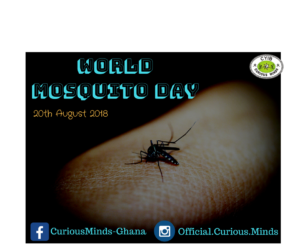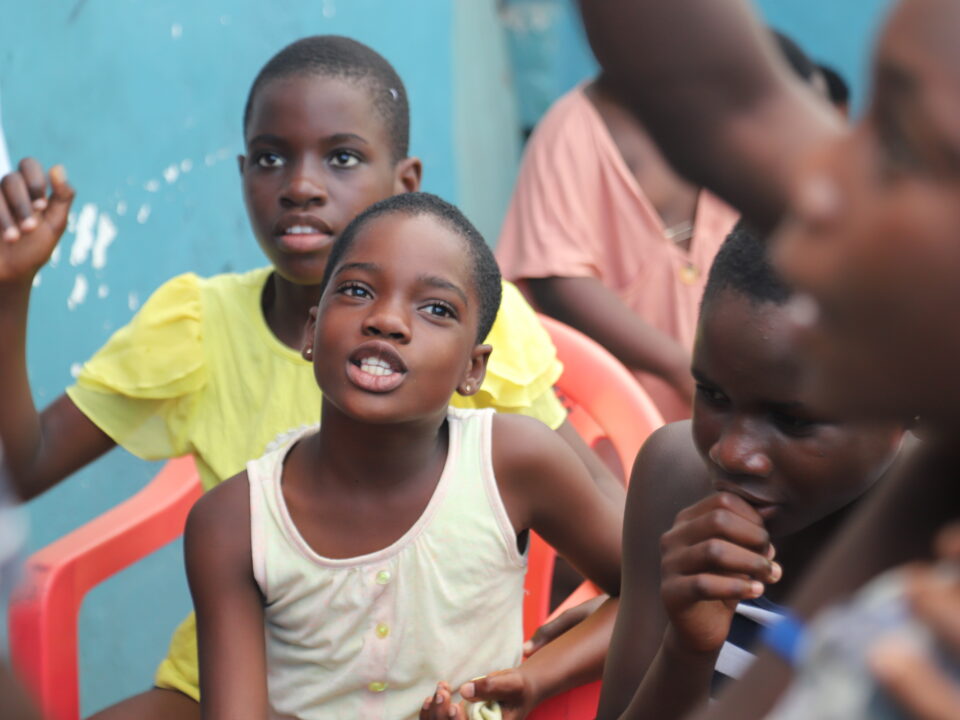
LET’S END SEXUAL AND GENDER BASED VIOLENCE IN GHANA-SAMIRA BAWUMIA
August 16, 2018
PROMOTING THE WELL- BEING OF THE INFORMAL SECTOR ENHANCES TAX PAYMENT- CSOs.
August 22, 2018 ‘Whine, whine, whine….’ it sounded like a school bell in my ears. Is it assembly time already? Yes, no, yes! for the mosquitoes. How could I have forgotten so easily. Why did I forget that it is the same mosquito bite that suck the blood of friends and has landed many to death and severe illness as seen on the television? No wonder it is hated by many across the world. Though it needs protein to reproduce, it could have towed its way somewhere else like the nectar of plants and not humans.
‘Whine, whine, whine….’ it sounded like a school bell in my ears. Is it assembly time already? Yes, no, yes! for the mosquitoes. How could I have forgotten so easily. Why did I forget that it is the same mosquito bite that suck the blood of friends and has landed many to death and severe illness as seen on the television? No wonder it is hated by many across the world. Though it needs protein to reproduce, it could have towed its way somewhere else like the nectar of plants and not humans.
The female mosquito known as the Anopheles feed on plant nectar and blood by piercing our skin with its “Proboscis” to suck blood whilst the male mosquito feed exclusively on plant nectar. Mosquitoes are the busiest at night and will fly up to 14 miles for blood meal. Almost everyone has had the unpleasant experience of being bitten by a mosquito. Mosquito bites can cause skin irritation through an allergic reaction to the mosquito’s saliva-this is what causes the red bump and itching. There are more serious consequences of mosquito bites which may be transmission of diseases and viruses such as malaria, dengue virus, Zika and water Nile virus.
Malaria is one problem facing us as a country. The quarter under review, the country recorded 2.3 million suspected malaria cases at the Out Patient Department (OPD). This represents a 1.18% increase over cases reported during the same period in 2016. Averagely, 24,885 suspected malaria cases were recorded daily. The number of malaria admissions reduced from 79,822 in 2016 to 69,467. The number of deaths also reduced from 379 to 143 in 2017. This represents a percentage decrease of 22.86% and 165.03% in admissions and deaths respectively. Out of the 143 malaria deaths recorded in 2017, 74 deaths occurred among children under 5 years compared to 152 in 2016. Malaria under five Case Fatality Rate (CFR) also decreased from 0.39 in 2016 to 0.22 in 2017 from National Malaria Control Programme (NMCP)Ghana Health Service, 2017.
In an interview with a pharmacist Ama (not her real name), who works in a pharmacy located in Abelenkpe, a suburb of Accra, she indicated that about ten (10) people come for malaria drugs each day on suspicion based on the symptoms they have. She indicated that since the country is marking World Mosquito Day, citizens should be educated on preventive measures in order to prevent themselves and their families from being diagnosed with malaria. She added that as pharmacists they are not really supposed to prescribe drugs to patients since most of such suspected cases might not necessarily be malaria. This is because most of them do not undergo test. She also explained that now victims of some illness turn to be their own doctors when they go walk into a pharmacy. “They tell you the drugs they want themselves and would not want to be probed on why they are buying such drugs. They even refuse to disclose to you whether or not the drugs have been prescribed by a physician from an accredited medical facility” She said.
Ama believes that malaria can be prevented or eradicated if we stick to the primary prevention program like sweeping and disposing off waste properly, covering our drains, washing of hands under running water with soap, appropriate personal hygiene, sleeping under treated mosquito nets among others, will instill a culture of responsibility among citizens. She also believes in the African proverb that says, “if you think you are too small to make a difference try spending the night with a mosquito “. She urged us all to come together to drive malaria away by driving our mosquitoes away.
Victoria Quaynor,
Intern, Member; CYIB-Curious Minds



